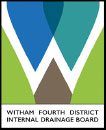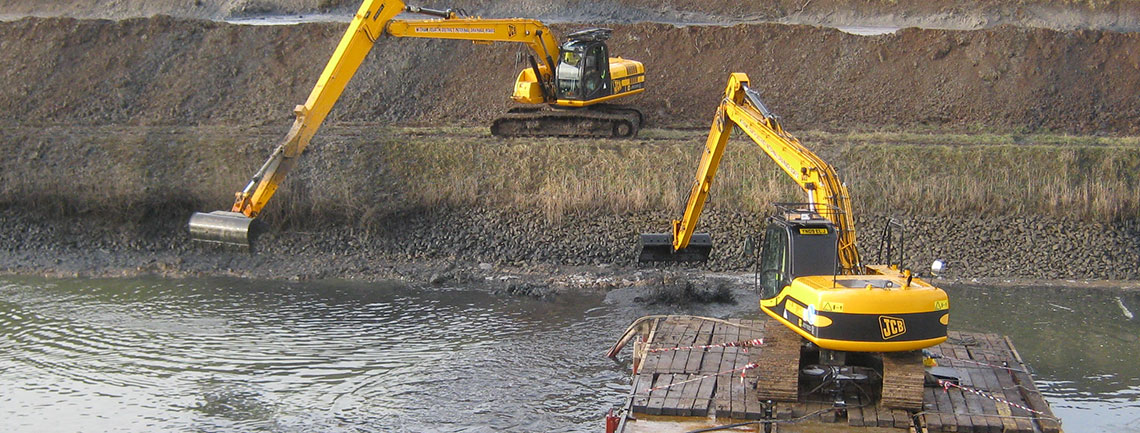Have a question? Look through our frequently asked questions for an answer.
Drainage rates are levied by Internal Drainage Boards (IDBs) as a charge on agricultural land and property (a rate of x pence in the £1) in an internal drainage district. The rates are levied to pay for essential maintenance and capital works carried out by the internal drainage board of that district. The value on which rates are set are based on 1991 land rental values.
A 15p in the £1 rate on a 100-acre field with a £50/acre 1991 rental value would be:
0.15 x 100 x £50 = £750.
These rates are payable because you occupy agricultural property within an internal drainage district. These districts are areas where special management is needed to reduce flood risk. This involves maintenance, improvement or new works to watercourses or structures (e.g. pumping stations) managed by an internal drainage board.
Agricultural use includes uses such as for paddocks and, to be rated, the land does not need to be used as part of an agricultural business. An allowance is made for land to be included within the curtilage of a domestic property but if you still feel that the rate demand includes land that it should not, please contact the Office who will arrange an inspection.
Rates are payable because your property is in an internal drainage district and the rates meet the costs of maintaining the drainage district provided by the board of that district. They are not charged because you do, or do not, have watercourses on your land.
They are due for payment upon receipt.
You can pay by cash, cheque, bank transfer or by card over the telephone or in the office.
Annual demands are sent in April and reminders by the end of June. If you have failed to pay following a final demand, court costs will be added to your account and the debt will be taken to the Magistrates’ Court to obtain a Liability Order. Should the debt still remain unpaid, the Board will instruct a Bailiff to recover the debt and you will also be charged for this.
Section 49 of The Land Drainage Act 1991 provides that anyone in occupation of land for any part of a year can be required to pay rates for the whole of that year. However, they then have the right to recover a proportionate part of the rates paid from anyone else who has occupied the land during that year. By ‘year’ we mean the financial year, running from 1st April to 31st March. We would normally split the drainage rate once we are aware of a change in Land ownership.
The Board grants permission for fishing clubs to fish in our watercourses and there are casual fishermen across the district. We discourage people from fishing near our pumping stations. We are able to do this as a licence is only a licence to fish, not a permission to fish.
Invasive alien species are defined as “species whose introduction and spread outside their natural ecological range poses a real threat to biodiversity and the economy” (European Commission Invasive Species publication). We actively try to eradicate such species in our district.
We have different winter and summer levels in the main drains and these can vary by up to a metre. We keep the levels lower in the winter as typically, there is more rainfall in winter months and we need to create more capacity in the drains to accommodate this. Climate change is altering the annual pattern of rainfall and the Board will respond to this.
The primary responsibility for the maintenance of any watercourse rests with the owner of that watercourse. This will USUALLY be the owner of the land adjoining that watercourse. Where the watercourse divides the separate ownership of two parcels of land, each land owner has a responsibility up to the middle of the watercourse. These are called “riparian” watercourses.
Where a channel is marked as an internal drainage board’s maintained drain, that board’s byelaws apply to it, and the board will often undertake required drainage works. The Land Drainage Act 1991, under which the Drainage Boards operate, however, enables them to act BUT DOES NOT REQUIRE THEM to carry out drainage works. These are known as permissive powers.
You can but you need to contact the Environment Agency who issue all licences for abstraction and impoundment. It is an offence to abstract or impound water without a licence.
Depending on the watercourse maintenance schedule, there is no guarantee that weed growth will be cleared to coincide with irrigation demands.
If you find rubbish, whether it is bin bags of garden waste, household rubbish or industrial waste dumped on your land, it is the landowner’s responsibility to clear it away. If it has been dumped on public land, or land under the control or ownership of a local authority, then it is their responsibility to get it removed.
This may be the District or Borough Council, Lincolnshire Highways or Witham Fourth District Internal Drainage Board. There may be evidence as to who may have dumped the waste, this evidence should not be disturbed but reported to the authorities. Waste found dumped in a watercourse should be left where it is due to health and safety risks and reported to us or the Environment Agency who have the proper equipment and training to remove the items safely.
Not found an answer here?
Not found what you are looking for? Contact us.


